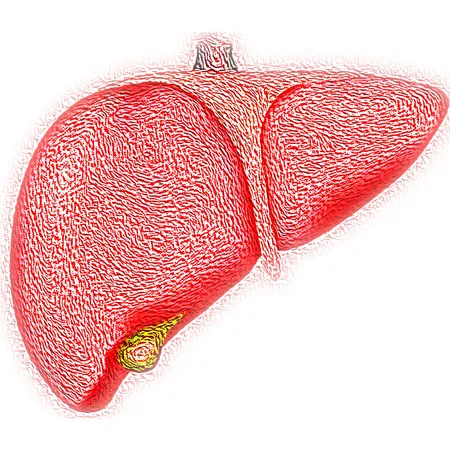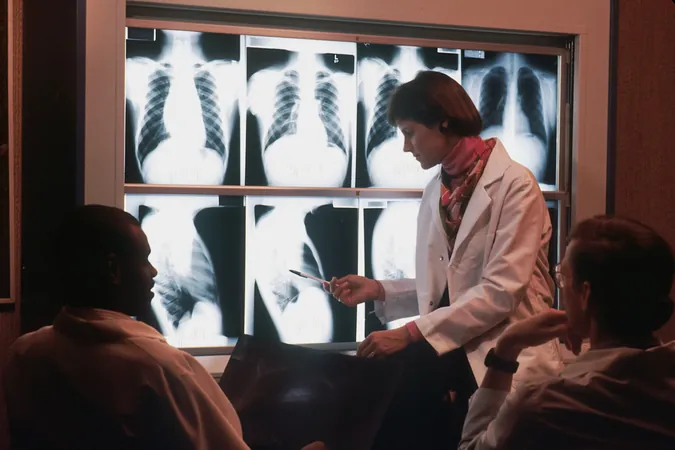
Groundbreaking Treatment Gives New Hope to Liver Disease Patients!
2025-03-28
Author: Wei
In an exciting breakthrough, researchers have revealed that damaged human livers possess the remarkable ability to repair themselves, even in cases severely affected by alcohol-related conditions like hepatitis and cirrhosis. This new approach integrates medication, abstinence, and emotional support—a trifecta of care that has been historically unavailable to liver disease patients, according to Dr. Courtney Sherman, a hepatologist and associate professor at UC San Francisco.
"In medical school, our focus was mostly on managing the symptoms associated with liver disease, such as elevated liver tests and various complications from cirrhosis. Unfortunately, there was little emphasis on addressing the root cause: the addiction," explained Dr. Sherman. This lack of targeted treatment often forced patients to continue drinking, which exacerbated liver damage and left doctors feeling powerless, caught in a never-ending cycle of managing deteriorating symptoms.
Drawing inspiration from a successful initiative at the University of Michigan that merged hepatology with mental health and addiction treatment, Dr. Sherman, alongside addiction counselor Davina Martinez, launched UCSF's first multidisciplinary clinic for patients grappling with liver disease and alcohol dependency. This innovative initiative, dubbed HALT—Healing Alcohol-Associated Liver Disease Together—is currently the only specialized clinic for alcohol-associated liver disease in Northern California.
With over 10% of individuals aged 12 and older in the United States grappling with alcohol use disorder, the clinic's mission is particularly urgent. According to research by the National Institute on Alcohol Abuse and Alcoholism, the prevalence of alcohol addiction varies among ethnic groups: 11.6% among American Indian or Alaska Native populations, 11% among white individuals, 10.8% among Hispanic or Latino individuals, and 9.6% among Black or African American individuals.
Understanding this pressing issue, Martinez, a member of the Native American Chemehuevi tribe, is dedicated to raising awareness about HALT, emphasizing that recovery is possible and help is available.
At HALT, patients participate in comprehensive consultations with both Dr. Sherman and Martinez. Dr. Sherman first assesses the patient's liver condition and devises a management plan to address liver-related complications and alcohol consumption. He discusses various treatment options, including the possibility of a liver transplant when appropriate.
Following this initial consultation, Martinez collaborates with patients to identify triggers for alcohol use, develop strategies to control impulses, and create tailored relapse prevention plans. Additionally, patients have the option to consult with Dr. Triveni Defries, an addiction medicine expert who can prescribe medications to help manage cravings and withdrawal symptoms.
Encouragingly, a February 2025 study from the Cleveland Clinic highlighted the effectiveness of similar integrated treatment models. The researchers discovered that approximately 45% of participants achieved remission from alcohol use by their first follow-up visit and experienced improvements in their MELD (Model for End-Stage Liver Disease) scores, which track liver disease severity.
Since the launch of HALT two years ago, Dr. Sherman and Martinez have treated over 300 patients, who are primarily referred by primary care doctors and gastroenterologists. They are currently gathering data to evaluate HALT's effectiveness.
"The evidence strongly supports that an integrated approach combining pharmacological and mental health care is the most effective for healing livers impacted by Alcohol Use Disorder," Dr. Sherman emphasized. "HALT's mission is to deliver holistic care that addresses not just the liver but the entirety of the individual."
Many patients at HALT face a range of alcohol addiction-related ailments, with some requiring transplants while others aim for healing through non-surgical methods. Regardless of their circumstances, Sherman and Martinez are committed to ensuring that patients understand they are not alone and recovery is achievable.
"I have seen countless patients who, despite needing a liver transplant due to advanced liver failure, were able to improve their conditions with alcohol abstinence, reducing their symptoms significantly," Dr. Sherman revealed. "When the toxic influence of alcohol is removed, the liver can indeed heal."
This innovative clinic offers a beacon of hope for those grappling with liver disease and alcohol addiction—proving that healing is not only possible, but achievable!




 Brasil (PT)
Brasil (PT)
 Canada (EN)
Canada (EN)
 Chile (ES)
Chile (ES)
 Česko (CS)
Česko (CS)
 대한민국 (KO)
대한민국 (KO)
 España (ES)
España (ES)
 France (FR)
France (FR)
 Hong Kong (EN)
Hong Kong (EN)
 Italia (IT)
Italia (IT)
 日本 (JA)
日本 (JA)
 Magyarország (HU)
Magyarország (HU)
 Norge (NO)
Norge (NO)
 Polska (PL)
Polska (PL)
 Schweiz (DE)
Schweiz (DE)
 Singapore (EN)
Singapore (EN)
 Sverige (SV)
Sverige (SV)
 Suomi (FI)
Suomi (FI)
 Türkiye (TR)
Türkiye (TR)
 الإمارات العربية المتحدة (AR)
الإمارات العربية المتحدة (AR)